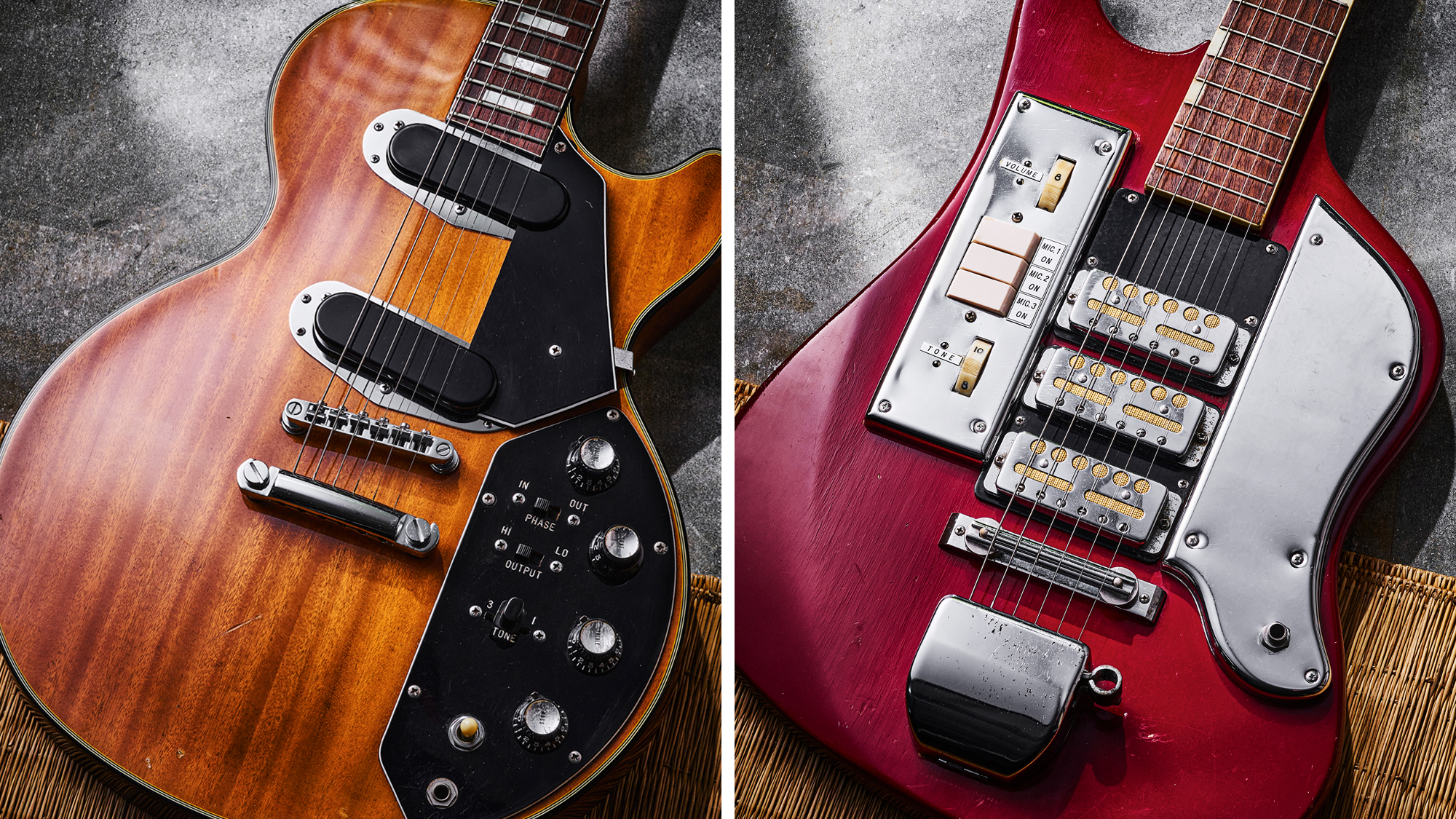
Tomorrow sees the release of the 10th anniversary edition of Slipknot's Iowa, a record that has undoubtedly stood the test of time better than many of the other albums that came out that year, albums by bands that now seem all but nostalgia acts, even after just a decade.
But make no mistake, Slipknot and the music on Iowa are every bit as fresh and relevant as they were 10 years ago. Ask yourself, in a time when we see billionaires getting caught trying to scam people out of even more money just to be that much richer, does the message behind "People = Shit" really ring any less true?
Iowa marked a clear transition from Slipknot being the biggest buzz on Ozzfest to becoming one of the pillars of the modern rock and metal world, a position they still hold, even as their future is dotted with question marks after the untimely passing of bassist and songwriter Paul Gray in May of last year.
I recently got the chance to catch up with guitarists Jim Root and Mick Thomson to talk about the past, present and future of Slipknot.
GUITAR WORLD: What do you remember about the songwriting process for Iowa? It happened pretty soon after the tour, right?
JIM ROOT: We had been on the road for two years, and after about a day I got a call to come over to Clown's house to start working on the new record. I really thought I was going to have more time off, but we got right to work, and that kind of set the tone for how we would always end up doing records.
MICK THOMSON: It was a little early. We were initially going to take a bunch of time off, because back then our touring was just ridiculous. We would do 17 or 18 shows in a row without a night off. Any date we weren't on Ozzfest or opening for someone else, we had our own shows lined up in an attempt to pick up gas money.
Get The Pick Newsletter
All the latest guitar news, interviews, lessons, reviews, deals and more, direct to your inbox!
It didn't take too long; it was like two months of writing and we were done. It was weird. It was still early enough in those days that we did a bunch of the writing in a warehouse. A friend of ours, his dad owns an electrical company so we ended up there. And we did some of it in Clown's basement or Paul's basement. It was definitely like the old days. Now we're a little more organized with tbe business.
It was always strange to me back then when people would lump you in with bands like Korn ...
MICK: Oh my God, or Limp Bizkit -- any of that shit!
Guitar-wise, the big thing that set you apart from all those bands was the fact that you were down-tuning at a time when seven-strings were flying off the shelves.
MICK: I was very against them. I taught guitar for a few years, so I'm like, "Why are kids buying seven-strings when they can't even play six? If you want something with a lower pitch, change your fucking string guages! Change your tuning!" [laughs] You don't need to add a seventh string. I'm glad those days are over, though. It seems like all the bands that play them now can really play them. They're getting the most out of them.
It definitely seems like you guys had more of a thrash thing going on, which was especially apparent on Iowa. For instance, I hear a lot of Exodus, Overkill, Slayer, etc. Were those bands feeding into the sound of Iowa?
JIM: Definitely, all those guys you just named. And Anthrax, early Metallica.
MICK: When were starting out, people would say we sounded like Metallica, and I was like, "Yeah, we both have distorted guitars, I guess." [laughs] I dont think we're very easily labeled because we don't really stick to one kind of thing. I wouldn't say "eclectic," because when I think of that I think of Mr. Bungle. I think we mix all sorts of different things and it just kind of turns into Slipknot.
You guys certainly proved a harder act to copy than some of the other bands around that time.
MICK: What's cool is meeting all sorts of bands who will come up to you and say, "Yeah man, back in high school I used to play your first record over and over again," and they don't sound anything like us. But for them to say it was inspiring and makes them want to make their own music, I know exactly how that feels. I wouldn't want to play music that sounds just like Testament; I love 'em, but I'll listen to my Testament album and then pick up my guitar and write my own shit. It's just inspiring.
A lot of people seem to confused "sounds like" and "influenced by."
MICK: Yeah, people are always coming up to me and asking, "Well, who are you influenced by?" And I'm like, "Hendrix?" And they'll say, "But you don't sound anything like him!" No, but I'm influenced to play music because of him. The whole reason I wanted to pick up a guitar was my dad's Hendrix record collection.
That's kind of the greatest satisfaction as a musician, when someone who isn't ripping you off cites you as being an influence or an inspiration. That to me is more rewarding than another platinum plaque on the wall. Those are cool, but it's really cool to know that when you're dead and gone, at least you left something behind.
Around the time of Iowa was when you guys first got a real taste of success. How do you think the band handled it in retrospect?
MICK: It's a lot to anyone to have all that kind of shit thrown at them, and it really tests who you are as a person. All of a sudden your life's just different, everything's different, everyone around you's different. They all have their motives and whatever. It was a pretty bad time -- all sorts of really toxic people hanging around. There were outside people having influence. Most of those people aren't around anymore as they proved to be bullshit. It was a pretty dark fucking time. I didn't like it at all. [laughs] I'm glad those days are gone.
Which brings us up to the present time. I'm curious to get a band's perspective on this, especially one that broke when the album format was still vital. Do you see the album as a still-viable format or are there different ways of releasing music you would be interested in pursuing?
JIM: I would like to keep putting out albums. But that's not to say that ... I think the Foo Fighters just recently after they released their last record, they went back in maybe three or four months later and just released it digitally as a single. That's not to say that you can't do cool things like that.
In my opinion, I would still like to go into a studio -- because I love the environment of being in a studio -- and record a great album beginning to end, but then maybe not release it as an album. Maybe put singles out there, put songs out there -- either give some away or release some the traditional way. It's kind of like the Wild West out there. I don't really know what it is, exactly.
So you think the album is still an important format for releasing new music?
JIM: I wanna buy vinyl and I want to listen to records on it. I want to put on Dark Side of the Moon in the dining room while I'm eating pasta or whatever. You know what I mean. [laughs]
The thing that scares me about the way the music industry has changed so much is that I'm afraid that the record, the album, will disappear, and it'll go back to the way it was in the '50s where everything is single-based. There's not going to be any funding, labels won't be able to put any money into bands that might have a really great artistic vision for their band and the only way they can do it is to buy some old recording equipment and build a studio in their basement or in their garage and put out full-length LPs.
And you don't find that unless you dig really, really deep through the Internet. And that's exciting in some ways and scary in others because there could be an artist out there that might not know what to do with all these amazing, creative ideas, and he just needs that one person that can help him get that shit out of his head and into the world. But he'll never get to do that because there isn't a record label that will be like, "Hey, don't worry about it. You just be creative and we'll put you with this guy and we'll pay the $1,500 a day for the studio so that you can be creative." That's going to be a thing of the past.
MICK: It is really, really weird. I mean obviously the Internet has changed everything. And in some ways for the better. We haven't made a record since 2008 ... I was talking to Paul Rivera from Rivera amps, and he was telling me that producers aren't getting shit anymore. People are making good-sounding records for like 15 or 20 thousand dollars now because everything's so easy now.
Shit, we spent so much money recording Iowa. We all had to have apartments and shit in Van Nuys, to be in the studio every days for x-thousands of dollars per day for two months. I know what we spent on that record, and then to hear that people are cranking out really good-sounding shit for 15 or 20 thousand bucks ... like, seriously? It's going to be weird for us next time we hit the studio, because I think it's going to be a whole different experience.
Which leads us right to the million dollar question: Will there be new material from Slipknot?
MICK: Nothing is official, but I would say there's a 95 percent chance we get something else out there.
JIM: I'm pretty sure we will. There are certain guys in the band that are always writing; I know I'm always writing. I've got an over-active brain when it comes to recording sessions. I use Pro Tools version 9 LE at home and I take that on the road with me. A lot the times I won't even finish a thought, but I'll at least put an idea on it, so we're constantly working.
I think Slipknot's going through some growing pains. We're trying to learn how to be Slipknot without Paul around. We've learned that we can tour still, and Donny's been working out great playing bass. But when it comes to being in the studio, Paul was an integral part of putting the music together. He had an amazing talent for musical arrangement and taking an idea that someone might have and really being able to let that idea blossom.
We might be a bit timid about putting our feet in that water at this point, but you never say never. Me, personally, without speaking for anyone else in the band, it's too soon for me to start thinking about doing a Slipknot record without Paul.
Jim, do you think another Stone Sour record might happen between now and a new Slipknot album as kind of a stepping stone for you and Corey?
JIM: Funny you should mention that. I wasn't going to mention what we're doing with Stone Sour, but all that stuff I was mentioning about hard drives and ideas and stuff, I just sent about a hundred Pro Tools sessions up to Josh [Rand, Stone Sour guitarist] for him to start going through.
I'm taking a little bit of a break right now, but we're throwing stuff back and forth. When you do the type of stuff that we do for a living you're compelled to keep doing it. Even if all the bands break up and there isn't a record label on earth that will touch me, I'll still be recording music on my Pro Tools rig, putting it out there and finding some local guys to jam it with and play it at clubs. It's just in you.
The 10th anniversary edition of Slipknot's sophomore album, Iowa, is due out tomorrow, November 1 via Roadrunner Records. Revolver's Slipknot special collector’s issue is also now available in our online store here.
Josh Hart is a former web producer and staff writer for Guitar World and Guitar Aficionado magazines (2010–2012). He has since pursued writing fiction under various pseudonyms while exploring the technical underpinnings of journalism, now serving as a senior software engineer for The Seattle Times.
“His songs are timeless, you can’t tell if they were written in the 1400s or now”: Michael Hurley, guitarist and singer/songwriter known as the ‘Godfather of freak folk,’ dies at 83
“The future is pretty bright”: Norman's Rare Guitars has unearthed another future blues great – and the 15-year-old guitar star has already jammed with Michael Lemmo











